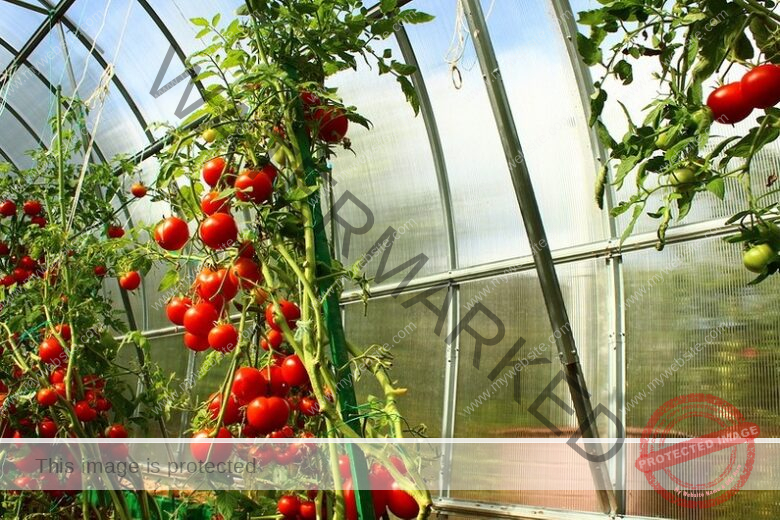Starting a farm in the USA is one of the lucrative and interesting areas to explore. According to the USDA farming and other agricultural activities contribute about 5% to the country’s GDP which is about $1.055 trillion to the U.S. gross domestic product (GDP) in 2020.
So, to be one of the farmers in the states and be part of those contributing to the nation’s economy, you can start a farm in the USA today.
So how do you start a farm in the USA? The best way to start farming in us is, to draw a business plan, decide your farming niche, do a market survey, locate your farmland and start farming!
So, let us get our hands dirty as we will be showing you a detailed report on how you can get your farm started in America today
How To Start A Farm In USA Step By Step Guide
Step 1: Decide Your Farming Area
To begin a farm, you must first decide what you want to grow.
Read Also: Top 8 Biggest Agricultural Companies In USA [2022 Ranking]
Types of Farming In the US
Farms come in all shapes and sizes, as one might expect.
There are huge and small farms, as well as ones that grow plants, livestock, or both. We’ve broken down the most frequent farm kinds into a few key groups for ease of reference.
Produce
Many varieties of fruits and vegetables can be found in the grocery store’s produce area. Even more unique products can be found at a farmer’s market.
This is the finest approach to show the variety of food farms that exist. Starting a produce farm and selling at farmers’ markets opens up a world of possibilities, from cucumbers to tomatoes, squash to onions.
Dairy and Livestock
Due to cultural shifts toward a plant-based diet, the dairy and cattle industries are expected to drop significantly over the next decade; yet this could be a good choice if you are running a farm.
These fields are still going strong. As more and more people become aware of the health benefits of hormone- and antibiotic-free meat, the livestock business is experiencing new sorts of demand.
Read Also: Top 10 Biggest Farms In The World
Consumers favor meat and dairy farms that take care of their animals before slaughtering them. A meat or dairy farm business may be an area where you can succeed if you so desire.
Fish
Unlike most other forms of farming, fish are raised either in tanks or enclosed bodies of water in a process known as fish farming. Typically, these fish are farmed for their meat and other delicacies.
As a fish lives in water, it is exposed to poisons and pollutants. Fish are better cared for when they are raised in a controlled environment, such as a tank. According to some estimates, half of the world’s fish is raised on fish farms.
Flowers
Floral farming is one of the most lucrative sorts of farm businesses.
Flowers are seasonal and necessitate a specific environment for their growth and production. Flowers can bring in up to $30,000 per acre, which is why farmers with property appropriate for flower farming can earn that much every year!
You have so many options as a flower farmer. It is possible to become a supplier for florists across the country or perhaps the world.
You can also start your own floral design business. Delivered arrangements, weddings, and funerals can all be added to your repertoire once you get your feet wet.
Farms that specialize in a certain type of food
Farms that specialize in a narrow range of products are few and few between. In addition to their products, many specialized farms provide visitors an opportunity to learn about farming.
This might resemble a quaint farm store or a high-end restaurant. Farmer-guided tours are also an option.
Some examples include;
- Bonsai farms
- Vineyards
- Cannabis farms
- Apiary (bee yard)
- Chocolate farms (dairy farms that specialize in chocolate products)
We’ve explored a wide range of farming methods, but there are many more out there to choose from.
Almost any plant or animal can be grown or raised on a small farm if the conditions are correct.
A farmer’s preferences and interests are significantly influenced by the crops they aim to raise. When starting a small farm, there are a number of ethical issues that must be considered.
Read Also: How To Start Farming With No Money {Beginners Guide}
In general, agriculture is heavily reliant on the land and other living things. If you’re a farmer, it’s probable that you’ll want to begin cultivating crops in a way that encourages biodiversity.
Your small farm’s return on investment will ultimately depend on the type of agriculture product that is produced.
Step 2: Get Trained in your chosen area
Starting a farm in the US is more than just a desire or passion. It entails having information on your new career.
Since there are so many variables that are outside the control of a small farmer, farming has a lot of different layers.
For the vast majority of agricultural endeavors, learning on the job is not an option. Farmers can gain knowledge in a variety of methods.
Some trade schools, colleges, and universities grant agriculturally-related diplomas or certifications as part of their programs.
Grants for agricultural education can be found by searching “grants for agricultural education” in Google.
Working as an apprentice or farmhand with an experienced farmer is an excellent way to learn about farming without going through the traditional educational process.
A small farm can be started with the help of organizations like 4H and other similar ones. Consider your own tastes and lifestyle when deciding on an agriculture education option.
Step 3: Raise Found For your business
To begin, you’ll need to raise capital, just like any other small firm. It takes a significant amount of money to run a tiny farm.
You’ll need a lot of different things, such as land, equipment, workers, permits, and insurance, just to name a few. Additionally, farmers have the option of purchasing a fully operational farm, although this will cost a significant amount of funds to get started.
A tiny farm can cost up to $10,000, to begin with. However, starting a large-scale commercial farm might cost millions of dollars.
A small farm can be financed in a variety of ways. When it comes to purchasing a vehicle, the simplest option is to pay for it in cash.
In the event that you don’t have a couple of million dollars laying around, there are other ways to realize your ambition.
You might be able to secure a business loan or find investors. Scholarships and grants for farmers are available from regional and national organizations as well, which you may be able to take advantage of.
Step 4: Procure Farmland To Get Started
After learning everything there is to know about starting a farm of this type and preparing a business plan to secure funding, you now have a clear idea of what you want to produce. It’s now time to look for and buy some land.
A farm’s property purchase must be carefully considered. Make sure the climate is suitable for the animals you plan to raise if you plan to raise cattle.
A whole new can of worms opens up when it comes to finding land to produce crops. Plants are notoriously picky. For a successful harvest, the conditions must be just right. There are a few considerations to keep in mind, such as the following:
- Does my crop thrive in the current weather?
- Is this climate found in any of the regions where the land is?
- Is the land nutrient-rich and well-distributed?
- Do you know how much rain the area receives?
- Is it prone to flooding?
- Is it feasible to water the ground when it’s dry?
- Is it going to be difficult to work in these fields?
- Including animals, is the land safe for everyone who works there?
The organic status of the land is a new consideration for many farmers when making their land choices.
If you’re interested in organic farming, you’ll need to verify your local laws. You should bear this in mind if you’re going to go the organic way, though!
Step 5: Write Business Plan for your Farm
What you plan to cultivate, raise, or produce on your small farm will have an impact on how you prepare the land.
You must ensure the fertility of your land if you want to cultivate crops. The process of naturally fertilizing your garden with compost and manure may take a few years.
Chemical fertilizers, on the other hand, are an option. Your opinions on sustainability will play a role in deciding how to improve your soil.
Crop rotation is one of the concepts you’ll study as part of your small business farming education. What crops should you grow next on land that has been farmed for a long time? Crop rotation patterns will help you plan and strategize a few years in advance.
It’s also a good idea to think about irrigation as you get started.
To keep animals, you’ll need the proper facilities. To establish what kind of shelter you will create, you need to know whether you are raising livestock for meat, eggs, milk, wool, or other byproducts.
If you plan to have extra animals on the farm, that is something else to keep in mind. Keeping cats on the farm keeps rodents and mice out of the feed, which is why many farmers keep them there.
You can also look at things from a business standpoint at this step.
Step 6: Start Executing Your Farming Plans
Having written your business strategy, it’s time to put it into practice. It’s critical to approach this adventure with an open mind. Make sure you have a plan B in case something goes wrong.
Step 7: Brand Your Farm Produce
Even if you only grow or raise one thing, you can nevertheless come up with a number of products that are closely associated with your small business.
Beets are a popular vegetable to raise. There is the option of selling beets in bulk. Additionally, you could sell cold-pressed juice, powder, and jam made from the roots of beets.
Make a decision about your product’s path and proceed in that direction. If your product is perishable, you’ll want to think about how to keep it fresh for as long as possible, as well as how to charge for it.
You’ll also want to work on refining your personal brand at this point. This goes beyond simply conjuring up cute visual representations of your brand. By outlining who you are as a company and what you can offer your consumers, you can get started.
Step 8: Advertise And market your goods
Who you intend to sell your items to will have a significant impact on your marketing strategy.
The following are some considerations to keep in mind while deciding on a target audience:
- Is the product going to be sold to a producer as an ingredient?
- Is your product going to be sold in a store or straight to the public?
- Is the product available for purchase online?
As we discussed before, your farm could provide an experience, which would necessitate a different approach to marketing and selling.
Do You Actually Need A Farm?
Agriculture is a vital part of the global economy. Apart from providing us with healthy food, farms are also the source of numerous other items we need on a daily basis. On top of that, farms serve as locations to relax and unwind.
In the last century, the agricultural world has undergone a significant transformation. If you weren’t born into a farming family, you can still start a farm business these days.
The subject of starting a successful farm will be the focus of this article. In addition, we’ll go through the different kinds of farms and how much they pay their farmers.
This is going to be a fun introduction to farming, so get ready with your work boots and pitchfork!
Are You Starting A small scale farming?
In the United States, 97 percent of all farms are owned and operated by members of the same family.
According to the USDA Economic Research Service, if you want to be labeled a small farm, you must make less than $350,000 per year.
There are about two million small farms in the United States, which include retirement farms, farms with off-farm occupations, and farms with on-farm occupations.
There is a lot of information on the USDA’s website concerning the small farm categorization system, but as long as your operation falls under the $0-$350,000 range, you can be sure that it will be considered a small farm business.
How Much Do farmers make In America?
The USDA Economic Research Service (USDA ERS) provided a breakdown of the net cash agricultural income prediction for the United States in 2020. Livestock farms are predicted to make between $5,900 and $347,000, according to the projections, while cash crop farms may anticipate making between $68,500 and $192,500.
For a farm business, there is clearly a large range of probable net profits. How much money you make as a farmer depends on what you grow or produce, the location where you reside, and many other variables.
Farmers must be clever in their offerings if they want to optimize their profits because many crops are seasonal and many animals only breed at specific periods of the year.
How much does it cost to start a farm in the US?
To start farming in the US, you will need at least $1000 and above.
How do I become a farmer in the US?
So, to be one of the farmers in the states and be part of those contributing to the nation’s economy, you can start a farm in the USA today.
Is farming profitable in the USA?
Farming is the most profitable and lucrative business to start in America.
How can I buy farmland in the USA?
You can buy farmland directly and rent it to farmers and ranchers, which is the most obvious approach to investing in farming. Due to the necessity for a big amount of land, this technique of investing in farming requires a large upfront investment.
Conclusion
In order to start a farm, there are numerous options. There is nothing wrong with the fact that every farmer’s business journey is unique.
In any case, the eight stages we’ve outlined for beginning a farm from scratch are a good place to begin. New farmers can use it to get their feet wet in the world of farming with confidence.
The time has come for you to put your newfound knowledge into practice and begin your farming career. Are you prepared to begin farming?




